Teaching Kids the Right Lessons: Why There Is No Such Thing as ‘Can’t’ at Lokshala
Lokshala is a community education centre which prepares children of all levels for reentry into formal education.
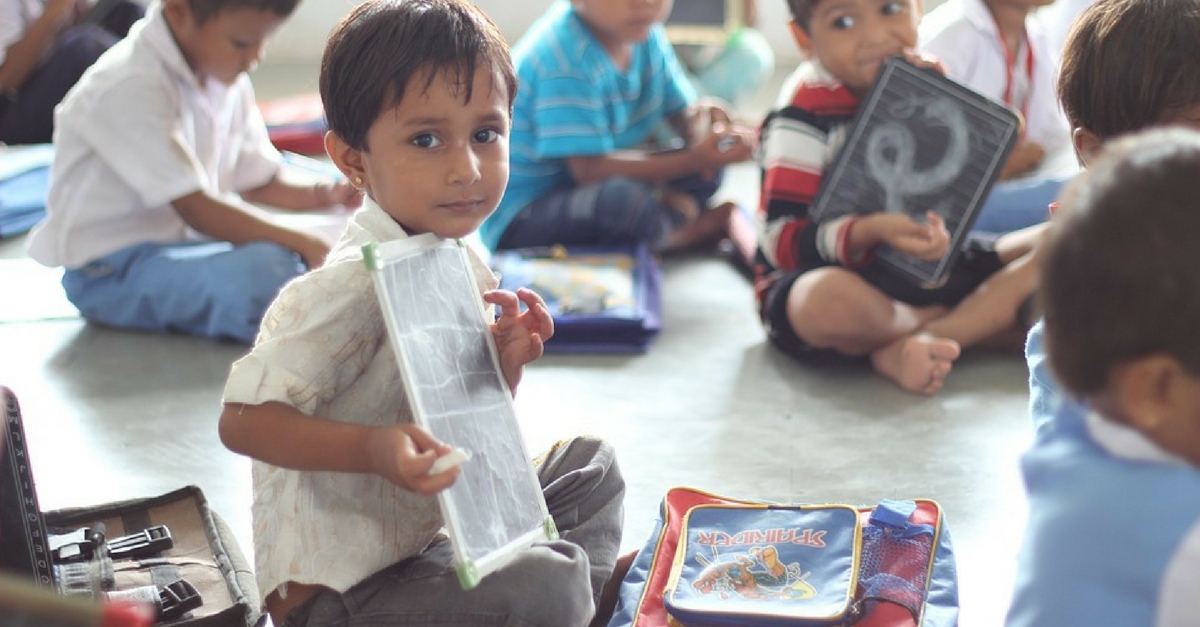
It’s 9:30 am, and a Shaishav staff member is flying down the streets of the Kumbarwada slum on their bike as I grab onto the seat behind them.
We were on our way to catch the second half of a Lokshala session. Lokshala is an educational initiative by Shaishav meant to track the progress of non-school going children and integrate them back into the public school system.
There many theories about what affects access to quality education. I believe three aspects dictate the quality of education: money, time and willpower.
Money
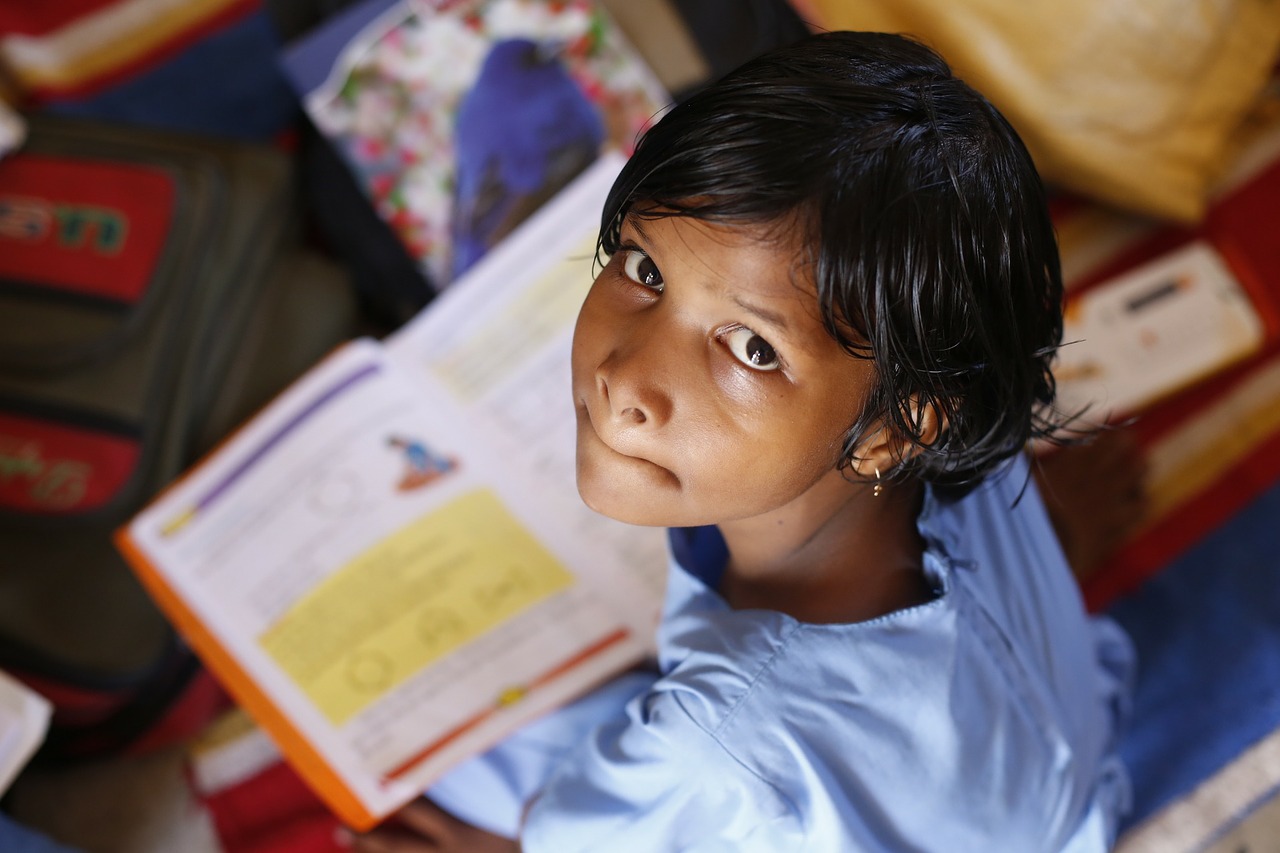
Picture for representation only. Source: Pixabay
Money can’t buy happiness, but it can buy a good education, arguably the surest way to a good life. The Right to Education Act of 2010 was meant to equalize educational access. However, public education infrastructure has not caught up to the number of children being enrolled, resulting in overcrowding and children being pushed out from lack of attention.
Indian parents often supplement their children’s education with after-school tuition. But with no method to compare the quality of private tutoring in slums, parents depend on hearsay and their financial constraints when choosing a school.
Although the RTE act has passed, Shaishav saw that public schools would need a lot more support before education was equalized for all children. In the meantime, some intervention would be needed to curb the private tuition market in slums.
Thus, the idea of Lokshala, a community education centre which prepares children of all levels for reentry into formal education was born.
Other than a small fee, which is at most Rs 100 and meant as a symbolic investment from the parents as a commitment to their children’s education, financial barriers are removed at Lokshala.
For those who can’t pay, even the entry fee is waived. Every child is given the most innovative educational methods possible, developed by the Shaishav team with past Fellows, NGOs and local educational stakeholders assisting as well.
Through the hard work of Shaishav’s facilitators and local community mobilizers, parents were slowly convinced that an education which cost less could, in fact, be of better quality and that the loss of their child’s wages would be worth it in the long run.
The Lokshala I am visiting is held in a room within a private home. The medium sized space is adorned with colourful posters explaining the alphabet, pictures of Indian heroes and the crafts from past classes.
The utter joy of the children’s faces as they join the Lokshala teacher in a learning rhyme makes it hard to imagine an environment that could be the exact opposite.
Shaishav caseworkers recount children avoiding the bathroom for fear of losing their place in a crowded classroom or being subject to corporal punishment while attending private tuition within slums.
Time
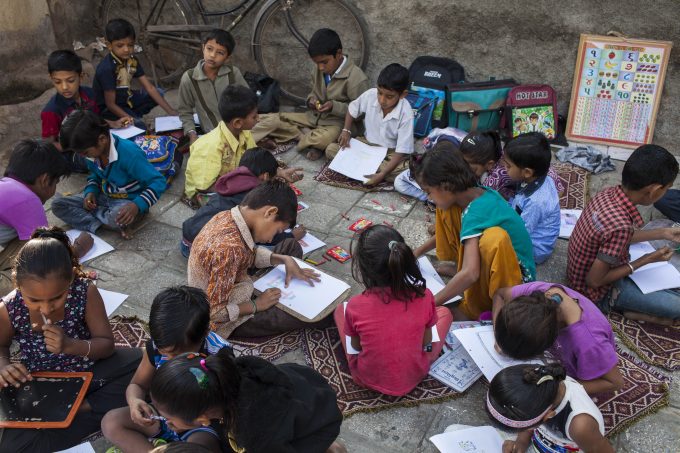
Time is an interesting concept. It can signify a child’s age or the amount of time they have in a day to devote to learning. In order to circumvent the problem of overcrowding, public schools hold four to five hour morning sessions for boys and a four hour afternoon sessions for girls, filling the 45-hour workweek required of teachers.
Lokshala supplements these lessons by holding morning sessions and afternoon sessions for children to attend before or after their formal educational classes. This type of schedule also makes it flexible for children who are still unable to pursue a full-time education due to labour or familial pressures.
Watching how Lokshala utilizes this precious time is inspiring.
If we each had all the time in the world, we could learn concepts as equally as the next person. Shaishav recognises that how long each child takes to master a concept is unique to them, and a longer learning time does not mean the child is hopeless.
Children are split into groups according to their learning levels, not age, and patiently learn at the pace of their peers. It is partly because Lokshala teachers are skilled at managing time and juggling several groups of students that children keep coming back.
The overwhelming sentiment was that the spirit of childhood should be incorporated into each lesson with games and songs. That a child shouldn’t look back and see time spent learning as an experience that didn’t make that their childhood more joyful.
Willpower
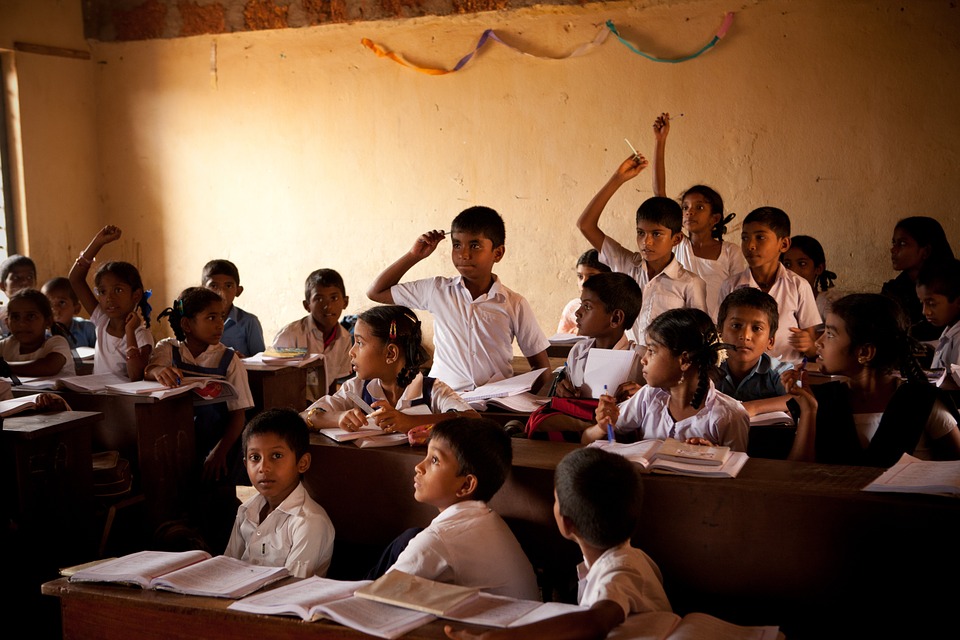
Picture for representation only. Source: Pixabay
Growing up, I thought talent was the last aspect of the trio, not willpower. I believed our performance would be maxed out by a certain amount of talent or IQ allotted to us at birth. Shaishav works against this notion, pushing its educational philosophy so that every child has a chance to have their ‘ah-ha!’ moment.
There is no such thing as ‘can’t’ at Lokshala, only why and how, fitting for a country known for its jugaad.
Lokshala teachers constantly consider why a child is at a certain achievement level and how to bring them to the next plateau.
The search for knowledge is not tied to our IQ because as long as we seek, we will try. Lokshala teachers are filled with stories of students overcoming all odds to return to school, and proving talent needs willpower.
Students possess an amazing amount of willpower to begin with and Lokshala tries hard to keep the momentum going by creating as joyful and encouraging of an environment as possible.
The Perfect Balance
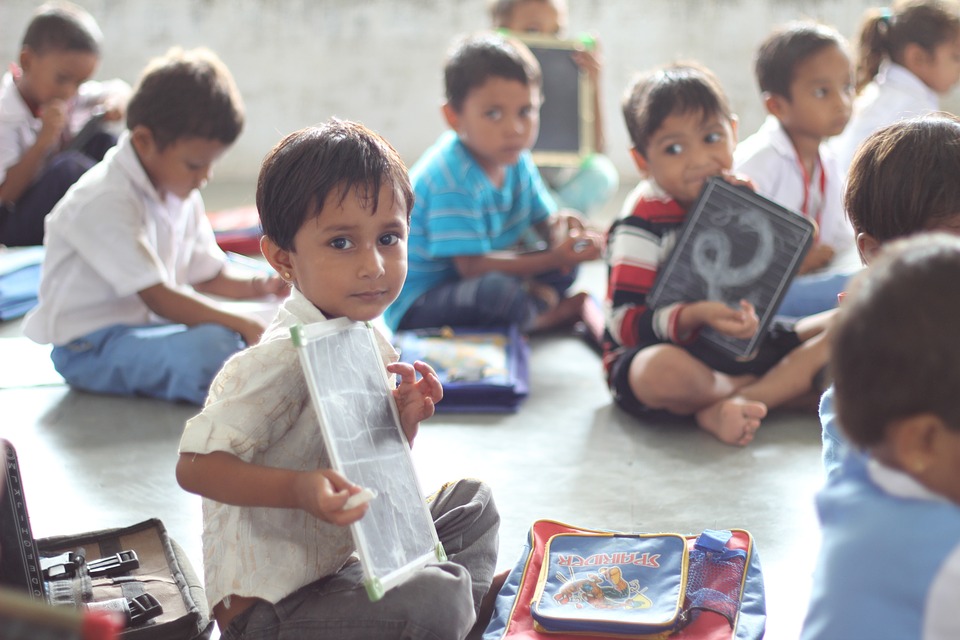
Picture for representation only. Source: Pixabay
So how do these factors influence each other and affect Lokshala children? Is there a perfect balance? Given the complex inner lives of the children, it is hard to pin down a definitive combination, so I tried to think of these concepts within the context of Lokshala.
There are heaps and heaps of willpower, stemming partially from the healthy learning environment and the natural enthusiasm of the children.
Money holds little influence as no child is turned down due to inability to pay. The remaining scarce factor seems to be time.
Although no child in Lokshala is rushed, it is hard not wish for more time observing how they learn and imagining new ways of teaching them. But then isn’t time is an elusive factor for students of all ages?
All in all, it feels like Lokshala is slowly finding a balance to preserve both quality and access.
As the Lokshala lesson wraps up, students press palms in the air with each other and exclaim “de talli”! which roughly translates to high five.
Not a single person leaves without this high spirited gesture with each child or adult present.
In this way, new friendships are created among newcomers while old friendships are further bonded. This simple, lovely gesture quickly makes feel me a part of the Shaishav family, much like it must have for the new children joining Shaishav. Big changes start with small gestures. Over the next 10 months, I look forward to seeing how Shaishav achieves its mission of being child right’s organization emphasizing a child participatory model.
References:
Dang, Hai-Anh and Rogers, F. Halsey, How to Interpret the Growing Phenomenon of Private Tutoring: Human Capital Deepening, Inequality Increasing, or Waste of Resources? (February 1, 2008). World Bank Policy Research Working Paper Series, Vol. , pp. – 2008. Available at SSRN
Jugaad means a creative solution to a complex or unyielding problem. The equivalent of a “hack” or “macgyver” in English.
(Written by Subhashanmugavel)
Like this story? Or have something to share? Write to us: [email protected], or connect with us on Facebook and Twitter.
NEW: Click here to get positive news on WhatsApp!
If you found our stories insightful, informative, or even just enjoyable, we invite you to consider making a voluntary payment to support the work we do at The Better India. Your contribution helps us continue producing quality content that educates, inspires, and drives positive change.
Choose one of the payment options below for your contribution-
By paying for the stories you value, you directly contribute to sustaining our efforts focused on making a difference in the world. Together, let’s ensure that impactful stories continue to be told and shared, enriching lives and communities alike.
Thank you for your support. Here are some frequently asked questions you might find helpful to know why you are contributing?


This story made me
-
97
-
121
-
89
-
167











